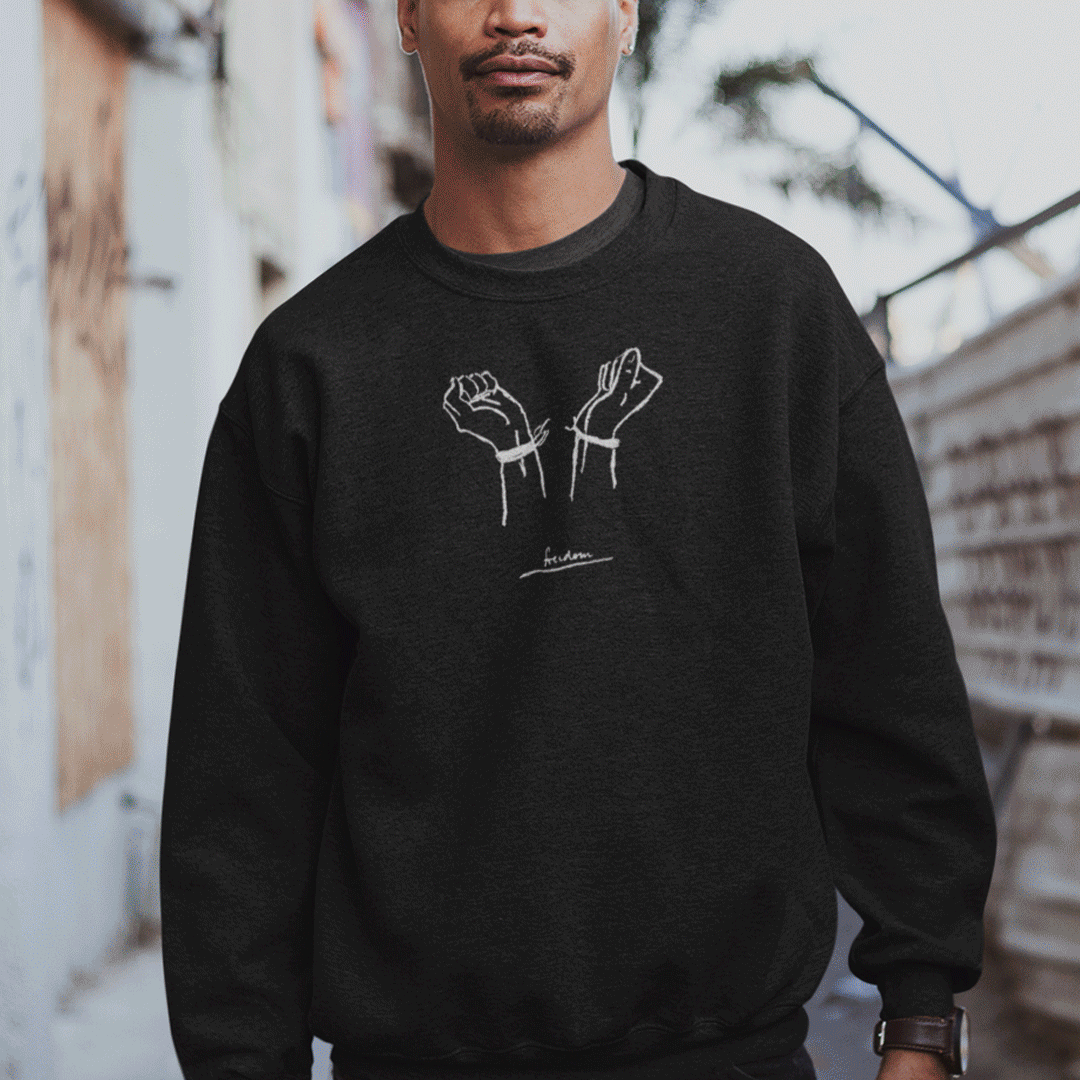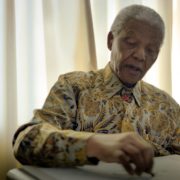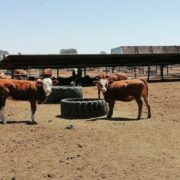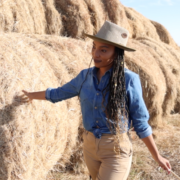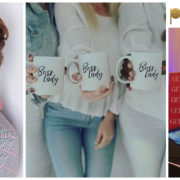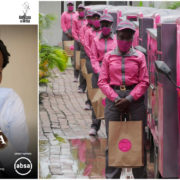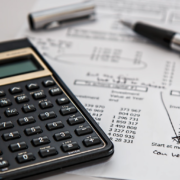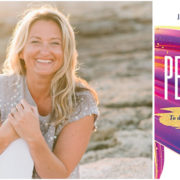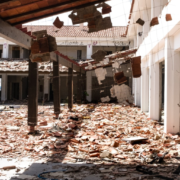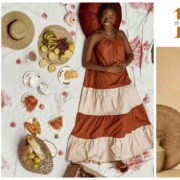What inspired you to start your company?
In the beginning, the idea behind Working Ladies Cabs was to launch a revolutionary transportation company that would find innovative solutions to overcome all problems that undermine people’s everyday life and community transformation in the DRC. With the focus on women’s empowerment as well, our aim was to offer a modern taxi service on-demand ride by women, and rental of vehicles and drivers including a wide product package.
A lot of technologies had been put in place, among which a mobile app UBIZCABS featuring the latest functionality such as GPS positioning to leverage communication between driver/client, Wi-Fi onboard of vehicle, mobile payment and secured digital payment by Visa card. While our core product was transportation, Working Ladies Cabs has since expanded to offer logistics, value chain and its drivers’ financial services products, including working capital finance, credit-auto and insurance into a partnership with M’kento.
We’ve then pivoted as a transportation and logistics business by becoming Bizzoly transports and logistics company with the purpose to serve a large range of products focused on mobility, logistics, micro-loans and value chain service to retail shops and wholesalers in DRC. We saw our purpose as an organization around what we call aggregating the informal retail, then using technology, transportation, logistics and then harnessing that buying power to essentially provide lower, better-cost goods, mobility, delivery service across DRC’s cities.
The social innovation behind Bizzoly Transport and logistics is the program called «Women of the future» which allows women with low income to gain credit for tricycles; or micro- loans on the fast-moving products for local retail under the M’kento women digital bank. On top of that, the company has taken its social responsibility, by offering job opportunities to underserved women during this period after the Covid-19 pandemic, as the social and economic situation in the DRC is becoming worse. These women have new streams of revenue, through diverse types of credit given to them, starting with auto credit.
We are doing the mountain climbing to empower women because we believe the present is female!
Why should anyone use your service or product?
Our Logic
Market penetration – we introduced the company and our services to the public by sustaining sales and operations, and pursuing the financial development of the company as the base activities in the initial development phase.
Promotion and support – we intensified our marketing outreach to promote current services, increase sales and gain the market share.
Increase focus – as the company operates, we earned experience and learned processes that enabled us to narrow scopes, and increase our profit margin.
Diversify – new features have been added to our operations and sales, such as the corporate line of product, introducing Ubiz Bora which is a VIP program to our clients, and some exceptional fleets for the airport shuttle.
Refocus – after the start-up period which was concluded by a A-SERIE Funding, we refined the company’s focus and made our business model fit the market conditions as responsively as possible.
Strategic Positioning & Risk Analysis
We hold the first mover advantage in the reliable private transportation service and logistics in the DRC. No other national or regional transportation player has done this, granting us the opportunity to leverage our strengths to build a high value and substantial service company to win our target market, and claim 30% of our competitors’ market share.
Our Strengths
We are keenly familiar with the local market and its sensitivity to trends and new entries. These invaluable sets of experiences were gained from numerous years and working with over 20 clients and companies in the marketing field in both Congos. These acquired skills and knowledge of the local market constitute our strength in tackling this new market.
Technology and training are also our strongest points as they guarantee the level of efficiency and rigorous high quality of service that we want to acquire and impose on the market. Our ability to be flexible and quickly develop customized programs built around customers’ specific needs is also a great strength in the current transportation landscape that is quite general. Lastly, Bizzoly Transport and Logistics is already an established brand in the DRC running print media campaigns, public events and entrepreneurial coaching.
Relative Risks
Most first movers in the market face the risk of seeing newcomers benefit from their already built business model for replications. Our company is aware of this risk. While we cannot prevent new competition arising and copying our model, we can ensure that our presence and service in the market remains unique and distinctively superior. By constantly investing in the capacity development of our staff and technology, we have positioned ourselves in the driving seat of this market and continuously strive to remain in the lead. This is a risk but also an opportunity for us, given that needs for mobility are always in demand regardless of the climate. If nothing else, people opt for safer, reliable and assured transportation options in lieu of waiting on the streets for pick-ups in situations of tense political climates. Our GPS tracking, time estimate and door-to-door policy is an attractive feature should unlikely situations occur.
Strategic Position
A careful evaluation of each of the factors associated with this undertaking has led us to conclude that our strengths and opportunities greatly outweigh the risks. Holding the first movers advantage, we try to maintain this position and dominate our market share given that no one is providing our line of services. Even if new competition arose, they could only do so by building up their brand in a market that is already saturated with ours. Our cutting edge technology allows us to stay at the forefront of new technology and to continuously pursue efficient and innovative ways to meet our customers’ needs. We are confident that many customers who currently ride Transco and private taxis, despite relative dissatisfaction, appreciate better options for safety, reliability and comfort offered by our company. Furthermore, we believe our target market has the capacity and willingness to pay at above the current general transportation fare in order to receive a customized, reliable and safe local transportation service while navigating the city. We also recognize that high quality customer service can only be acquired through high quality and rigorous training of our employees. Our ability to place a strong emphasis for our staff to hone superior customer service skills, attitudes and personalities is unique.
How We Win
We win because we deliver quality products at the best prices with excellent customer service. We hold the first mover advantage in the reliable private transportation service in the DRC. No other national or regional transportation player has done this, granting us the opportunity to leverage our strengths to build a high value and substantial service company to win our target market, and claim 30% of our competitors’ market share.
We are keenly familiar with the local market and its sensitivity to trends and new entries. These invaluable sets of experiences were gained from numerous years and working with over 20 clients and companies in the marketing field in both Congos. These acquired skills and knowledge of the local market constitute our strength in tackling this new market. Technology and training are also our strongest points as they guarantee the level of efficiency and rigorous high quality of service that we want to acquire and impose on the market.
Our ability to be flexible and quickly develop customized programs built around customers’ specific needs is also a great strength in the current transportation landscape that is quite general. We partner with UN global goals in: Innovation, infrastructure, gender equality, job creation, reduction of poverty and economic inclusivity.
Tell us a little about your team
Today, our 50 full-time employees and our 50 consultants and free-lancers work hard and help us to reach our company goals of making an impact and fostering community. As a gender equality company, we have 80% women and 20% men in our workforce. They are composed of: Chief Executive Officer; Chief of Operation Officer; Chief of Finance Officer; HR officer; Chief of Technology Officer; Operation Assistant; Dispatch Manager; Logistics Manager; Maintenance Officer.
Share a little about your entrepreneurial journey. And do you come from an entrepreneurial background?
My name is Patricia Nzolantima; a pure Africa product with over 18 years of experience in entrepreneurship and women’s empowerment. As a serial entrepreneur, I am a seasoned leader in market disruption initiatives on the African continent. My story is a story of a Congolese woman who decided one day to use the power of media, communication and network as a tool to change women’s lives. I have used my entrepreneurship journey to turn a negative need into a positive need for other individuals. We know that if we empower women, they can do anything.
My dreams began a long way from here, in a place that couldn’t be more different – on the roads of Kinshasa. I started my first business venture in high school when I sold waffles and cake to some of my classmates, then opened my first company. However, when I opened my first formal company I was rejected by the banks, private equities; nobody gave me a chance to finance my project and I became a female entrepreneur because I didn’t have anything to give the bank as warranty Ultimately though, my primary passion has always been to empower other women to break longstanding expectations about a woman’s role in society – to pierce the highest and hardest glass ceiling – and to become entrepreneurs and community leaders themselves.
Because all of us here know from experience that, for our countries to succeed, women can’t continue to be treated as second-class citizens; that when women earn a steady pay check, we are more likely to invest what we have in things that strengthen families and neighbourhoods – in education, nutrition, health care, and shelter. So I poured all my energy and resources into that cause, launched a women’s magazine and organized events to allow women in business to meet each other and encourage one another to keep going.
My entrepreneurial experience allowed me to pursue my larger goals: One day, to create a women’s development bank dedicated to financing women-led projects and to establish an incubator/accelerator that will offer funding, training, and mentorship to African women ready to start or scale up their own businesses. So 10 years later, after the launch of the first cabs driven by women in Kinshasa, my partners and I launched the first women’s and girl’s Economic Empowerment Hub in Kinshasa; and, soon we are launching the Women Investment Fund dedicated to help women to scale up their business. Through our Women Economic Empowerment Hub, we will create a new emerging market for all women who are involved in agriculture and transformation.
The Women Economic Empowerment Hub is a legacy of empowering girls and women. By offering financing, training and counselling to African women as a way to enable them to launch successful business ventures, we saw a possibility to help women rise and help overcome societal challenges that plagued their communities.
With a long-term objective to one day to create a digital bank for women in DRC to bank unbankable women, which can finance and provide technical assistance to women entrepreneurs; and change the Africa Narrative!
Through these African Women, our motivation and passion rely on showcasing Africans and Africa in a positive light; building, projecting, promoting and reinforcing the new contemporary face of Africa: strong, confident, savvy, independent, bold, intellectual, responsible. This is the new Africa that speaks for itself, identifies and proffers effective solutions for its own problems, celebrates its peoples. It’s all about rebuilding the battered image of the continent so that it can shine forth in a new, refreshing and more accurate light. We also have a social marketing side in our know-how and experience.
We know that if we empower women, they can do anything because the Future of Africa is Female!
What are your future plans and aspirations for your company?
For Bizzoly Transport & Logistics to become a prominent transport and logistics company. Through our Women Economic Empowerment Hub, by the year 2025 we aim to support 1,000,000 women to become entrepreneurs through transportation, logistics and value chain.
Statistics show that in most African countries, women’s use and knowledge of ICTs (to store, share, organise and process information) is less than men’s, which limits their options of generating income and chance to network with a larger group. By 2022, Bizzoly Transport and Logistics in partnership with Visa International, Ecobank and Veericash is launching Africa’s first digital only women’s bank (M’kento Digital Bank). It will rival the current offerings on the African landscape, by delivering Africa’s largest ‘women in business’ financial digital institution, leading in the financial transactions domain, through an innovative, matchless and diversified fintech proposition that incorporates digital banking, mobile money and fintech aggregation.
The app will not only support women who are making revenue through our program but will enable them to accelerate the growth of their businesses and provide access to basic and advanced financial services including transfers, merchant payments, cross border transactions, low cost credit lines and capital instruments such as e-shares to support their financial independence and wealth creation. M‘Kento aims to be Africa’s largest ‘women in business’ digital financial institution, leading in financial transactions through an innovative, well designed and comprehensive fintech platform that incorporates digital banking, mobile money and fintech aggregation.
Our Ambitions Goal
To diversify and expand our products line by 2021. Launching UbizDelivery and becoming a pointer in the logistics and value chain. Launching new public transportation product (Dar Dar, UbizBoat) by December 2021. Launching our digital payment bank M’kento pay. Become a pioneer in transportation and logistics and value chain. Country expansion and product diversification by 2022-2023. Expand to 5 new cities in DRC. Launching Bizzoly assembly electric tricycle factory. New products line: Dar Dar, Ubiztour, UbizAdvertising. Grow DRC’s Transportation community to 30 million by 2025 and East Africa expansion. Launching UbizAirlines with our Own our Private jet and airline ambulances. UbizInsurance Company. Opening franchises in East Africa (Rwanda, Kenya, Uganda, etc.)
What gives you the most satisfaction being an entrepreneur?
Empowering and mentoring women gives me the most satisfaction, and the empowerment of communities through women. Also, the empowerment of women through transportation. Shifting of perceptions about women’s capabilities. Driver training; Vehicle maintenance training; Artisan training; The structure of the project is such that there are two major milestones. Our mission through our Hub is to build Africa’s first digital payment and banking platform, tailored for women. We also aim to empower, enable and educate women across Africa so as to foster sustainable economic growth, create jobs and promote gender equality.
Accelerator Programme
In addition to the micro loans, Bizzoly Transport and Logistics opened its own hub called «Working Ladies-WIA Hub», which is an accelerator centre for women and retailers to scale up their businesses, through training (sales, financial, mentoring) them for a stronger and brighter future, and a co-working space to allow them to review their business processes. The International Working Ladies Hub’s mission is to empower women in order to help them utilize their full potential, emancipate themselves, and use their leadership to bring positive changes. The Hub wishes to perpetuate its vision through our three pillars: Education, Networking, Entrepreneurship. Our vision is to look for leaders who develop a strong business model, which builds a global community of collaborative business women.
We empower African women by integrating the 3P’s: Power, Purpose, and Platform. We create a trustworthy, supportive, and growing community. We promote women in the Education, Entrepreneurship, Agribusiness, Finance sectors. In the Technology sectors, we provide intense training, coaching & networking opportunities.
What’s the biggest piece of advice you can give to other women looking to start-up?
Now is the time to break the glass ceiling for African women. We have to finish what we started years ago (gender equality).
My fellow women, we have the potential to fuel our countries’ future economic growth. Despite the increasing number of women business owners, men still dominate the leadership roles.
I believe that women can be responsible for their success. I encourage women to understand their context, uncover what they want, discover their definition of success, identify their strengths and weaknesses, and set goals to break the glass ceiling.
Discussions on the importance of diversity and inclusion practices in organizations have been widespread in recent years. Although they sound great, there has been little action. The reasons are that these practices typically are drafted only to meet regulatory norms or, in some cases, are poorly funded.
Leaders should use the full potential of their network to help women gain more visibility. Mentoring alone does not equal promotions for women, but sponsorships could be the key to unlocking workplace gender barriers.
Society cannot be altered overnight, but by identifying what is important, we can help each other create strategies to break the glass ceiling.
Our eagerness to lead and devote our time and energy to achieve these goals will result in making a name for ourselves.
Stop waiting for approval, validation, or acceptance. If we cannot get a seat at the table, we should build our own.
Let us harness our skills as a generation, our energy in conjunction with our abilities to innovate and create.
To find out more about Patricia Nzolantima and her businesses
Contact her via email patricia@comuni-cart.com or visit her company website and social media platforms:
WEBSITE | TWITTER | INSTAGRAM
Follow Patricia Nzolantima and her work in the media
DW DOCUMENTARY : https://www.dailymotion.com/video/x80ep5d
https://www.inclusivecapitalism.com/member/patricia-nzolantima/
LA TRIBUNE AFRIQUE : Entrepreneuriat : Patricia Nzolantima, un « phénix » Congolais https://afrique.latribune.fr/decideurs/entrepreneurs/2020-09-09/entrepreneuriat-patricia-nzolantima-un-phenix-congolais-856765.html
LE MONDE AFRIQUE : A Kinshasa, le taxi se décline au féminin
https://www.lemonde.fr/afrique/article/2020/07/25/a-kinshasa-le-taxi-se-decline-au-feminin_6047258_3212.html
PATRICIA NZOLANTIMA : LA FEMME QUI PRATIQUE L’ENTREPRENARIAT AU FEMININ
https://www.youtube.com/watch?v=8i7XXS_qOcM
M6 OFFICIEL : LES MILLIONNAIRES DU CHAOS
https://www.youtube.com/watch?v=e7cIlkF4G5U
CANAL+ : REUSSITE https://www.youtube.com/watch?v=WfQzzCCmLbg
FRANCE 24
https://www.youtube.com/watch?v=KZuxwlrYh0w
BBC AFRIQUE
https://www.youtube.com/watch?v=y26bJLm39gk https://www.bbc.com/afrique/media-47212813
AFP
https://www.youtube.com/watch?v=Rcd4TwibWsM
TV5 MONDE INTERNATIONAL
https://www.youtube.com/watch?v=GJL5M05yfgk
TV5 MONDE AFRIQUE : AMBITIONS
https://www.tv5mondeplus.com/toutes-les-videos/magazine/ambitions-ambi- tions-ep22-patricia-nzolantima
TV5 MONDE AFRIQUE : FEMME EN ACTION
https://afrique.tv5monde.com/videos/magazines/femmes-dafrique-en-action/ season-1/episode-7-0
MSN.FR
https://www.youtube.com/watch?v=KZuxwlrYh0w
RTBF.BE
https://www.rtbf.be/info/dossier/les-grenades/detail_ubizcabs-un-uber-congo- lais-au-feminin?id=10305770
HELIOS TOWERS: “Driving mobile innovation in DRC” https://www.heliostowers.com/videos/#page=1
AFRICAIN INFO
https://www.africain.info/news=4915234
LE MONDE AFRIQUE
https://www.lemonde.fr/afrique/article/2020/07/25/a-kinshasa-le-taxi-se-decline- au-feminin_6047258_3212.html
FLUX AFRICA
https://www.fluxafrica.com/post/femme-mobilit%C3%A9-un-service-de-taxis-100- f%C3%A9minin-en-rdc
AGENCE ECOFIN
https://www.agenceecofin.com/entreprendre/2201-73051-rd-congo-ubizcabs-un-ser- vice-de-taxis-conduits-par-des-femmes-le-jour-et-par-des-hommes-la-nuit
ALIBABA FOUNDATION
https://africabusinessheroes.org/fr/finalists/2020/top50
DIGITAL MEDIA
https://sdgactionawards.org/initiative/1202
https://justinfos.net/congo-ubiz-cabs-des-voitures-haut-de-gamme-avec-une-equipe- 100-feminine/
https://www.challenges.fr/societe/rdc-a-kinshasa-dans-l-enfer-des-transports-collec- tifs_659039
http://www.kinshasatimes.cd/working-ladies-lance-son-service-de-taxis-modernes-ubiz- cabs-le-10-fevrier-2018/
https://actualite.cd/2018/01/31/ubizcabs-ces-nouveaux-taxis-avec-des-femmes-au-vo- lant
https://www.congo-autrement.com/blog/accueil/ubizcabs-taxis-100-voitures-seront- mises-a-la-disposition-des-femmes-a-credit-pour-leur-permettre-de-se-lancer-dans-l-en- trepreneuriat.html
https://vudaf.com/business/ubiz-cabs-uber-congolais-luxe-feminin/
http://africa-digest.com/kinshasa-ubiz-cabs-le-uber-congolais-100-feminin/
https://www.ceciliaemmawilson.com/africa-insight/2019/11/5/she-tested-ubiz-cabs-the- 100-female-taxi-in-kinshasa
https://www.startupgrind.com/events/details/startup-grind-kinshasa-presents-from-launch- to-continuity-with-patricia-nzolantima/
http://entrepreneurafricain.com/entrepreneures-croyez-en-vous-patricia-nzolantima-rdc/
UBIZDELIVERY
http://www.lecorrespondant.cd/g?post=85
https://web.facebook.com/StartupWebzine/posts/a-kinshasa-patricia-nzolantima-vient-de-lancer-ubizdelivery-un-service-de-livrai/729183821200726/?_rdc=1&_rdr
